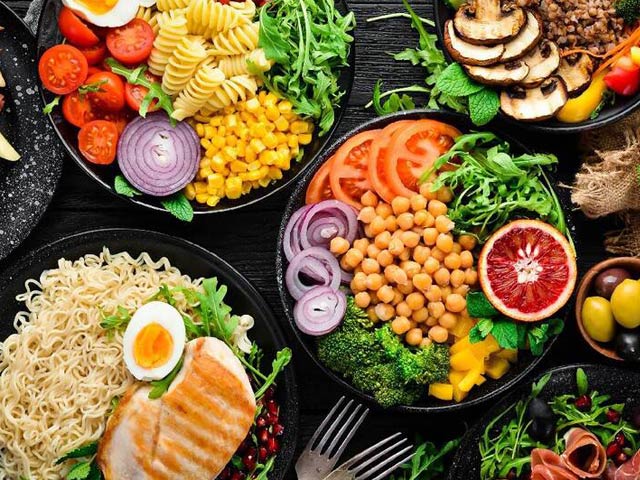
The Mediterranean diet plays an important role in preventing diseases and prolonging life. Photo: File
Spain: Eating a Mediterranean diet can prolong human life and help ward off disease. Many benefits of this diet have been revealed, but now there is more evidence of longevity.
For lunch and dinner in Spain, Italy, and many neighboring countries, fruits, vegetables, legumes, beans, nuts, whole grains, brown rice, highly refined olive oil, and fatty fish such as salmon are eaten. In which omega fatty acids are found. This diet is called the Mediterranean diet.
The study analyzed data from 110,799 people in a UK registry. In which dietary preferences, exercise, social relationships, diseases and especially cancer were examined. The data was then looked at by the University of Autónoma in Spain and the Harvard TH Scan School of Public Health. This is the first study to examine the effects of the Mediterranean diet on people outside the region.
It was found that if such a diet is regularly included in the life, it reduces the risk of all kinds of premature death by 29% and the risk of cancer attack by 28%. According to the report, these people from Great Britain had consumed Mediterranean foods while living in their country and have adopted this lifestyle. But it also includes their own cultural and cultural influence.
But it also includes lifestyle, exercise, human activity, better sleep and regular meetings with friends and other routines.
This is the reason why experts have declared this type of dietary preferences as useful, which is also another important scientific evidence in the context of the Mediterranean diet.
(function(d, s, id){
var js, fjs = d.getElementsByTagName(s)[0];
if (d.getElementById(id)) {return;}
js = d.createElement(s); js.id = id;
js.src = “//connect.facebook.net/en_US/sdk.js#xfbml=1&version=v2.3&appId=770767426360150”;
fjs.parentNode.insertBefore(js, fjs);
}(document, ‘script’, ‘facebook-jssdk’));
(function(d, s, id) {
var js, fjs = d.getElementsByTagName(s)[0];
if (d.getElementById(id)) return;
js = d.createElement(s); js.id = id;
js.src = “//connect.facebook.net/en_GB/sdk.js#xfbml=1&version=v2.7”;
fjs.parentNode.insertBefore(js, fjs);
}(document, ‘script’, ‘facebook-jssdk’));



